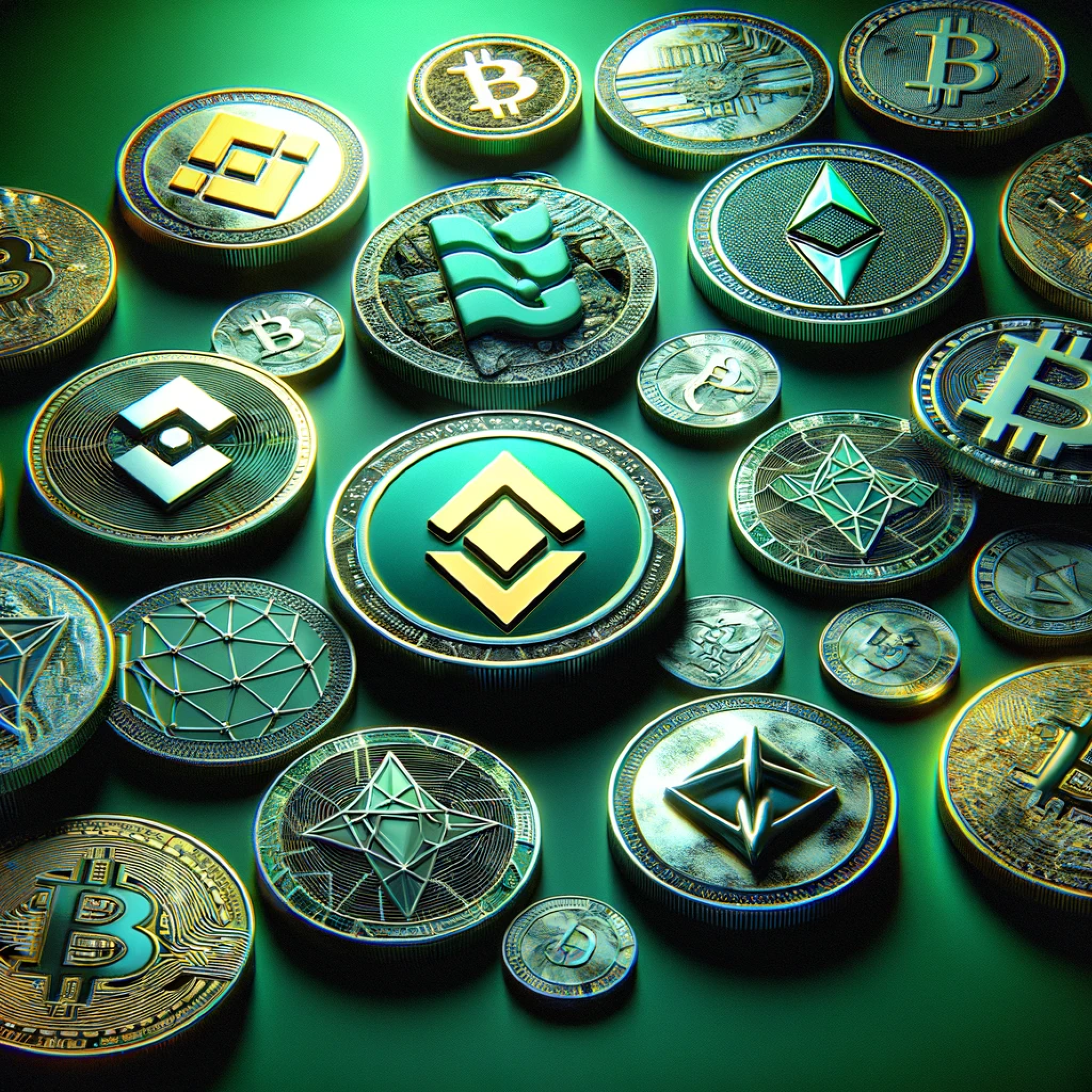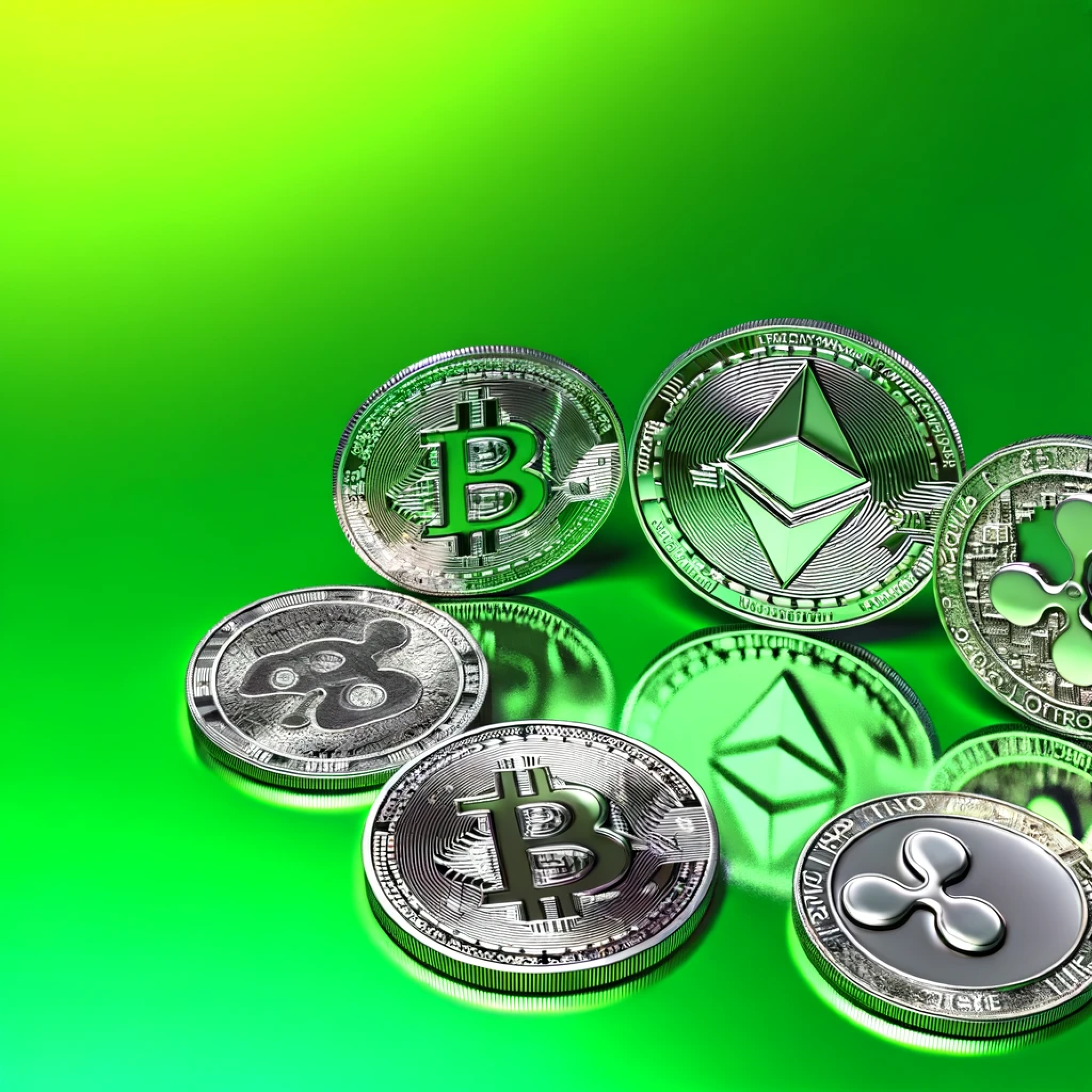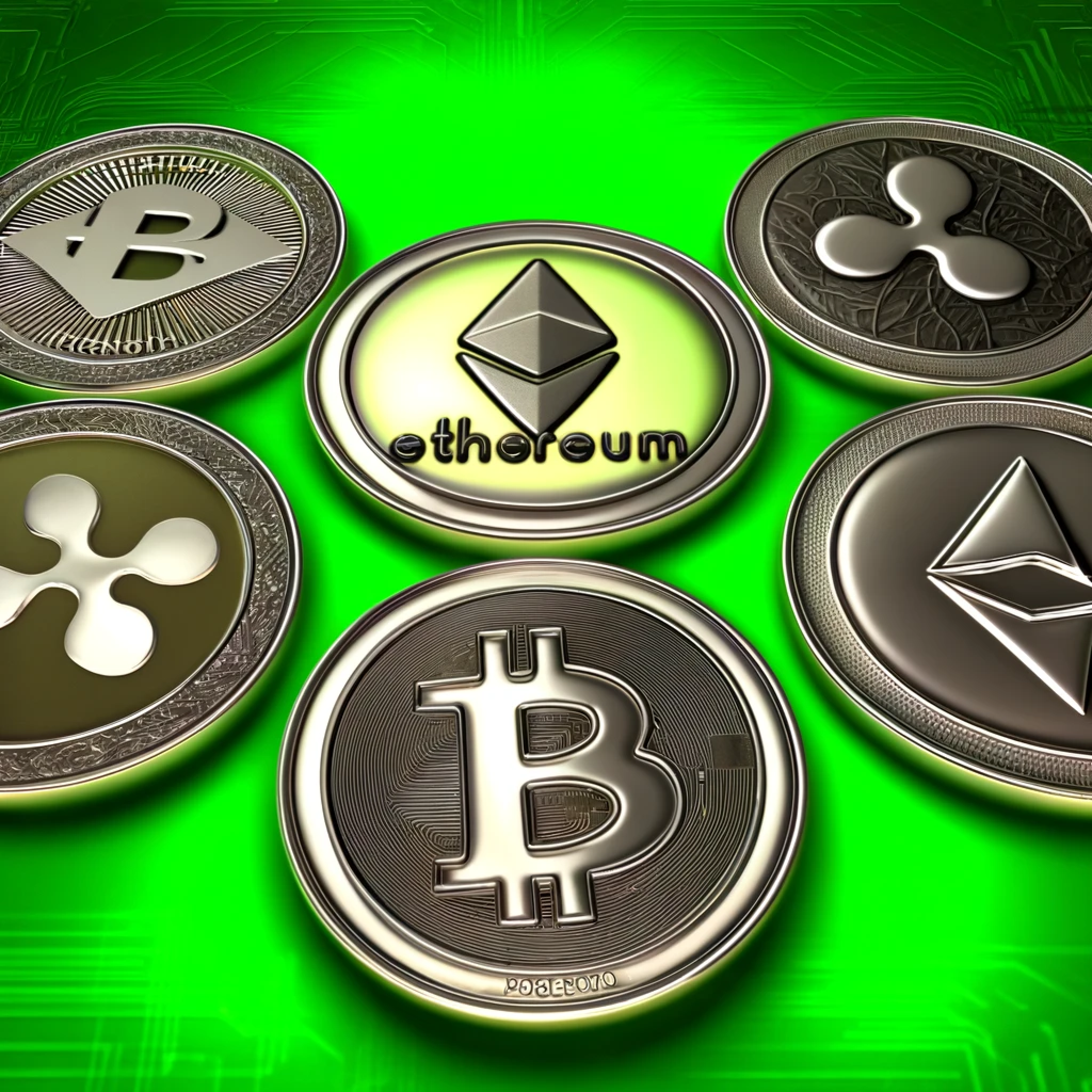Important Disclosure: The content provided does not consider your particular circumstances and does not constitute personal advice. Some of the products promoted are from our affiliate partners from whom we receive compensation.
If you require any personal advice, please seek such advice from an independently qualified financial advisor. While we aim to feature some of the best products available, this does not include all available products from across the market. Although the information provided is believed to be accurate at the date of publication, you should always check with the product provider to ensure that information provided is the most up to date.
Forbes Advisor has provided this content for educational reasons only and not to help you decide whether or not to invest in cryptocurrency. Should you decide to invest in cryptocurrency or in any other investment, you should always obtain appropriate financial advice and only invest what you can afford to lose.
Ripple is a money transfer network designed to serve the needs of the financial services industry. XRP, a cryptocurrency tailored to work on the Ripple network, is consistently listed among the top five cryptocurrencies by market capitalisation.
What Is Ripple?
Ripple is a payments settlement system and currency exchange network that can process transactions around the world. The idea is that Ripple serves as a trusted agent in between two parties in a transaction as the network can quickly confirm that the exchange went through properly. Ripple can facilitate exchanges for a variety of fiat currencies, cryptocurrencies like Bitcoin and even commodities like gold.
It was essentially designed to be a replacement for SWIFT (a money-transfer network) or to otherwise replace the settlement layer between major financial institutions.
The standard fee to conduct transactions on Ripple is set at 0.00001 XRP, which is minimal when compared to the fees charged by banks for conducting cross-border payments.
Featured Partner Offers
What Is XRP?
XRP is cryptocurrency that runs on the XRP Ledger, a blockchain engineered by Jed McCaleb, Arthur Britto and David Schwartz. McCaleb and Britto would go on to found Ripple and use XRP to facilitate transactions on the network. XRP can be bought as an investment, as a coin to exchange for other cryptocurrencies or as a way to finance transactions on the Ripple network.
Notably, XRP’s blockchain operates a little differently than most other cryptos’. Other cryptocurrencies open their transaction ledgers and verification processes to anyone who can solve complex equations quickly, but transactions are secure as the majority of ledger holders must agree with the verification for them to be added.
Instead, the XRP’s Ripple network somewhat centralises things: While anyone can download its validation software, it maintains what it calls unique node lists that users can select to verify their transactions based on which participants they think are least likely to defraud them. Its default list currently contains 35 trusted validators. Ripple decides which validators to approve for this list and also makes up six of these validation nodes. However, users can opt out of this default list and hypothetically remove Ripple-backed validators from their transactions entirely, instead constructing their own lists of trusted validators. This would allow the network to continue to approve transactions even without Ripple the company remaining involved or even continuing to exist.
As new transactions come in, the validators update their ledgers every three to five seconds and make sure they match the other ledgers. If there’s a mismatch, they stop to figure out what went wrong. This allows Ripple to securely and efficiently validate transactions, which gives it an edge over other cryptocurrencies, like Bitcoin.
“Bitcoin transaction confirmations may take many minutes or hours and are typically associated with high transaction costs,” says Lee. “XRP transactions are confirmed around four to five seconds at much lower cost.”
How to Mine XRP
“Mining” is the distributed verification system used by most blockchain-based cryptocurrencies. It both facilitates transactions and provides the mechanism by which new currency is introduced into a cryptocurrency system—typically as a reward to verifiers for their work supporting the network. For example, Bitcoin has a total supply limit of 21 million tokens that are steadily released as more and more transactions are verified.
XRP, in contrast, was “pre-mined,” meaning the XRP Ledger created 100 billion tokens that are then periodically released publicly. Ripple owns about 6% of that as an incentive for it to help the cryptocurrency grow and be successful over time. Another approximately 48% are held in a reserve for regular release into the market through sales.
Understandably, this has led to concerns that a lot of XRP could be released at once, diluting the value of other XRP already in circulation because part of what gives any currency its value is its comparative scarcity.
Some of Ripple’s advantages
- Fast settlement. Transaction confirmations are incredibly fast. They generally take four to five seconds, compared to the days it may take banks to complete a wire transfer or the minutes or potentially hours it takes for Bitcoin transactions to be verified.
- Very low fees. The cost to complete a transaction on the Ripple network is just 0.0001 XRP, a small fraction of a penny at current rates.
- Versatile exchange network. The Ripple network not only processes transactions using XRP, but it can also be used for other fiat currencies, cryptocurrencies and commodities.
- Used by large financial institutions. Large enterprises can also use Ripple as a transaction platform. Santandar, Axis Bank and Yes Bank are a few using this network, demonstrating it already has larger institutional market adoption than most cryptocurrencies.
Some of Ripple’s Disadvantages
- Highly centralised. One of the reasons that cryptocurrencies became popular is that they were decentralised, taking control away from large banks and governments. The Ripple system is centralised and goes against this philosophy.
- Ripple Labs controls the XRP supply. Ripple Labs decides when to release coins, giving it control versus other cryptos where coins are slowly and steadily released by mining. This means Ripple Labs has more power to influence the value of XRP by deciding when and how many tokens to release.
- Recent regulatory action against XRP. In the States last year, the Securities and Exchange Commission (SEC) filed a lawsuit against Ripple, saying that since it can decide when to release XRP, the company should have registered it as a security. Until this gets resolved, it could slow down institutional use of this system. Several exchanges have also stopped listing XRP as a result.
How You Can Use Ripple and XRP
You can use XRP like any other digital currency, either for transactions or as a potential investment. You could also use the Ripple network to process other types of transactions, like exchanging currencies.
For example, if you are looking to swap Sterling for Euros, you could first exchange your GBP for XRP on the Ripple network, and then use those to buy Euros, rather than handling the currency exchange directly through a bank or money-changing exchange. This can be a much faster and cheaper approach versus paying the high fees banks and money remittance organizations may charge.
Should You Buy XRP?
While some might find the vision and benefits for XRP compelling, White is worried the SEC lawsuit could create trouble for those looking to buy into it.
“They are positioning themselves as a settlement layer for regulated companies, but they’re also deep in a dispute with the SEC. None of the customers they would love to be onboarding can really start to use XRP until Ripple has gotten their legal woes figured out,” he said.
With all this uncertainty, Enneking warns that XRP can be a gamble not for the faint hearted. Though it has since more than recovered, “the SEC announcement caused the price of XRP to plunge,” he notes, making this crypto a particularly volatile investment until things are sorted out with the SEC.
That said, if you believe that Ripple will emerge victorious against the SEC and continue taking over as a payment system, then it could be worth buying XRP. Just make sure it’s with money you can afford to lose.
Cryptocurrency is unregulated in the UK. The UK regulator, the Financial Conduct Authority, has repeatedly warned investors that they risk losing all their money if they buy cryptocurrency, with no possibility of compensation.




